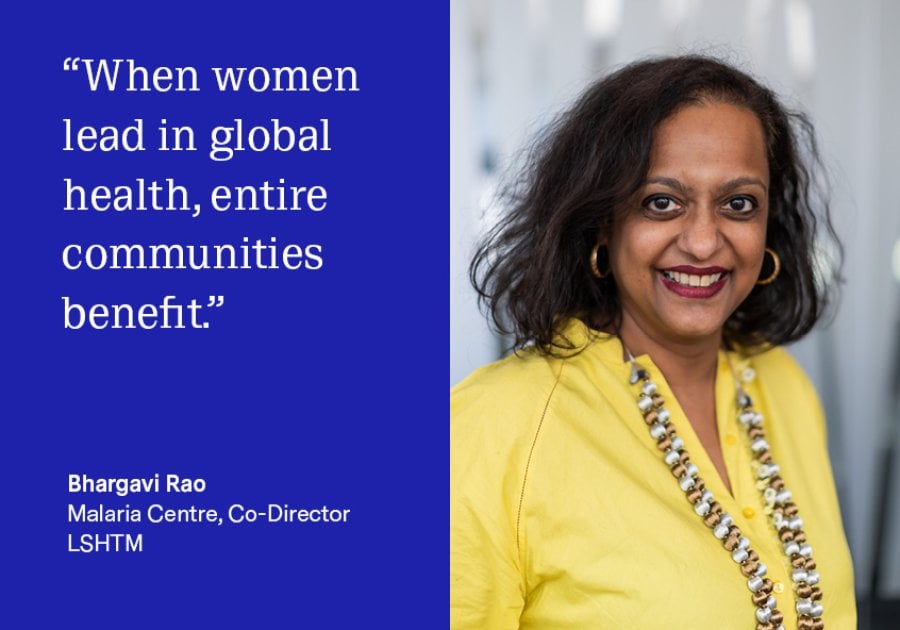
“Gender diversity in malaria research isn’t just about representation—it strengthens the science itself. Women bring unique perspectives that enhance innovation, improve public health strategies, and ensure interventions are equitable and effective. When women lead in global health, entire communities benefit,” Bhargavi Rao, Co-Director, Malaria Centre, LSHTM
As the world marks International Women’s Day 2025 under the theme “For ALL women and girls: Rights. Equality. Empowerment,” we reflect on the critical role women play in malaria research and control. Investing in their leadership and contributions is not only a matter of equality but also a vital strategy in the fight against malaria.
Malaria remains a major global health challenge, disproportionately affecting women and children in endemic regions. Women are often primary caregivers in their communities, placing them at the frontline of exposure. They also make up a significant portion of the healthcare workforce, playing essential roles in prevention, treatment, and research. Pregnant women with malaria are a particularly high-risk group, with more severe outcomes including miscarriage, neonatal low-birthweight, severe anaemia and maternal death.
Despite their critical role in fighting malaria, women remain underrepresented in leadership positions in science and healthcare. According to the United Nations (UN), gender inequality persists across sectors, including health, where women face barriers such as unequal access to education, training, and funding.
Empowering women in malaria research and public health is crucial for developing inclusive and effective strategies. Greater representation in leadership roles ensures that interventions address the unique challenges women face—whether in accessing healthcare, participating in clinical trials, or influencing policymaking. Bridging these gaps is not only a matter of fairness but a key factor in eliminating malaria.
Clinical Associate Professor and Malaria Centre Co-Director Dr Bhargavi Rao said: “Gender diversity in malaria research isn’t just about representation—it strengthens the science itself. Women bring unique perspectives that enhance innovation, improve public health strategies, and ensure interventions are equitable and effective. When women lead in global health, entire communities benefit.”
Postdoctoral Researcher and Malaria Centre Co-Director Dr Eniyou Cheryll Oriero said: “It is common knowledge that women are more often faced with overwhelming domestic responsibilities that affects their availability and involvement in the general scientific discourse. The role women play as primary caregivers in most families and communities places them at a uniquely advantageous position that can be harnessed to have far-reaching outcomes. From the use of control and preventive interventions and other public health strategies to treatment outcomes, educating and engaging women specifically can lead to significant improvement on overall impact.”
If you enjoyed this article and would like to build a career in global health, we offer a range of MSc programmes covering health and data, infectious and tropical diseases, population health, and public health and policy.
Available on campus or online, including flexible study that works around your work and home life, be part of a global community at the UK's no.1 public health university.
